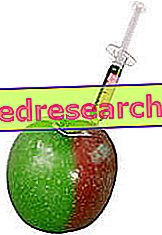Watch the video
X Watch the video on youtubeOtitis is a mainly infectious inflammatory process that affects the ear. Based on the involved auricular portion, more forms of otitis can be distinguished: internal (or labyrinthitis), medium (which affects the middle ear) and external (otitis of the swimmer).
Ear pain, tinnitus and hearing impairment are three symptoms that are particularly common in all forms of otitis. The disease is generally reversible in a few weeks. However, no symptoms should be underestimated, considering the real risk of complications (eg dizziness, perforation of the eardrum, deafness, etc.).
What to do
- Applying warm compresses directly to the ear affected by otitis is a good remedy to temporarily relieve pain
- In case of confirmed bacterial or viral otitis, follow a specific antibiotic / antiviale therapy
- When swimming, it is advisable to use caps (possibly in latex) to protect the ears from water: the advice is particularly useful for otitis externa prevention
- After a hot bath or swim, dry the external ear canal thoroughly with a tissue or a damp cloth
- During night rest, it is advisable to sleep with the headboard slightly raised (place a pillow under the mattress, in line with the point where the head rests): doing so, favors the emptying of the Eustachian tube
- It is possible to facilitate the drying of the ear with the help of the hair dryer, kept at a certain distance
- Regularly apply emollient drops to the ears (once a week): the suggestion is particularly useful for patients subject to earwax caps
- Protect your ears from harmful / irritating substances: for example, women who use hair dyes should insert sterile gauze in the ear (NOT in depth) - or better still cover their ears with a piece of cloth - to prevent the acid of the dye enter the ear
- Drink lots of fluids and try to swallow often: this attitude stimulates the emptying of the Eustachian tube, accelerating the healing time from otitis
- Swimming on the surface avoiding to put the head under water: patients predisposed to otitis should avoid swimming in depth (effective remedy to prevent otitis of the swimmer)
What NOT to do
- Use sticks covered with cotton for ear hygiene: the mechanical action of the cotton bud, in fact, pushes the ear wax towards the ear canal which, compacting, creates the cap
- Perform ear irrigation in case of tympanic perforation
- Insert objects into the ear: irritation and extra-infectious lesions can also predispose the patient to otitis
- Scratching or scratching the ear: this behavior could damage the skin of the external auditory canal, thus favoring the proliferation of pathogens (→ otitis)
- Swim in case of ear infections or recent ear infections
- Take milk and derivatives immediately after taking antibiotics such as tetracyclines: dairy products can inactivate the drug
- Administer aspirin to children under the age of 12: similar behavior can cause serious side effects, such as Reye's syndrome, liver dysfunction and brain changes
- Smoking: smoking, both active and passive, promotes infections, especially in those predisposed. Furthermore, smog and smoke pollute the environment with irritants, responsible for the congestion of the Eustachian tubes
- Strike: even if otitis is a relatively light infection, it should not be underestimated. We remember, in fact, that in some cases otitis can cause serious damage, such as deafness and perforation of the eardrum
What to eat
- Take yogurt with live lactic ferments or a probiotic in case of prolonged antibiotic therapy to strengthen the immune system
- Take lots of fruit and vegetables, as it is rich in antioxidants (vitamin C and E)
What NOT to Eat
- There is no scientific evidence that relates food to the improvement or worsening of the symptoms of otitis. It is recommended to follow a healthy, balanced diet, rich in fruit, vegetables and low in fat.
Natural Cures and Remedies
To speed healing, it is possible to apply some emollient drops formulated with natural substances into the ear. Remember, however, that even though these are natural active ingredients, medical advice is always important before instilling any substance into the ear. Ceruminolytics and emollient drops can facilitate the removal of earwax, a possible cause of otitis. The most effective natural remedies are:
- Olive oil
- Peanut oil
- Sweet almond oil
- Vaseline oil
- Oily macerate of propolis
- Ylang ylang oil (emollient, antiseptic properties)
- Macassar oil (emollient, anti-inflammatory, antiparasitic properties)
Pharmacological care
- Administration of therapeutic aids, useful for alleviating the pain and secondary symptoms of otitis:
- Paracetamol or acetaminophen (eg Tachipirina, Acetamol)
- Ibuprofen (eg. Brufen, Moment)
- Acetylsalicylic acid (eg Aspirin, Ascriptin, Vivin C)
- Hydrocortisone (corticosteroid drug): indicated for severe forms of auricular inflammation
- Local anesthetics: to be used when otitis generates ear pain:
- Antipyrin + benzocaine
- Acetic acid + benzocaine + antipyrine + policosanol
- Antibiotic therapy: indicated to remove the pathogen involved in otitis
- Ofloxacin (eg. Exocin, Oflocin) and Cefixime (eg Cefixoral, Suprax): topical antibiotic drugs
- Amoxicillin (eg. Augmentin, Klavux), Cefuroxime (eg Cefoprim, Tilexim) and Clarithromycin (eg Biaxin, Macladin): antibiotic drugs for oral intake.
Prevention
- Breastfeeding the baby with mother's milk if possible, very important for strengthening her immune system: it seems, in fact, that breast-fed babies are less exposed to the risk of otitis
- Wash your ears regularly
- Avoid scratching the external auditory canal to prevent any bacterial proliferation
Medical treatments
- In the case of suppurative otitis that does not respond to antibiotics, surgery is recommended to drain the fluid accumulated inside the middle ear
- Aspiration of wax or curettage (mechanical removal of the earwax cap with a curette): even the earwax cap can expose the patient to the risk of otitis



